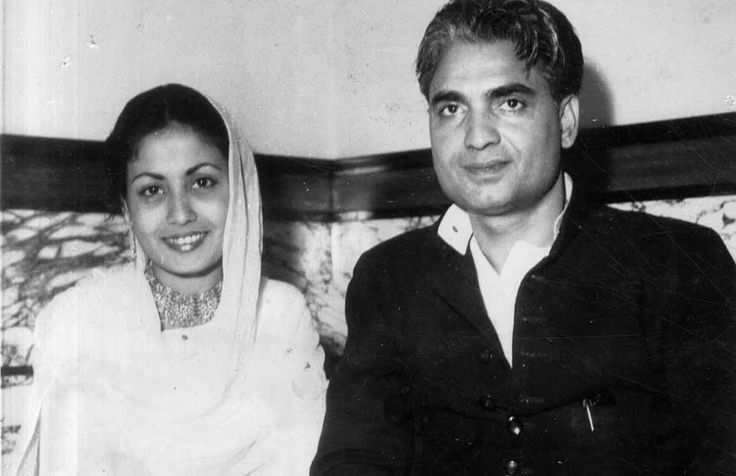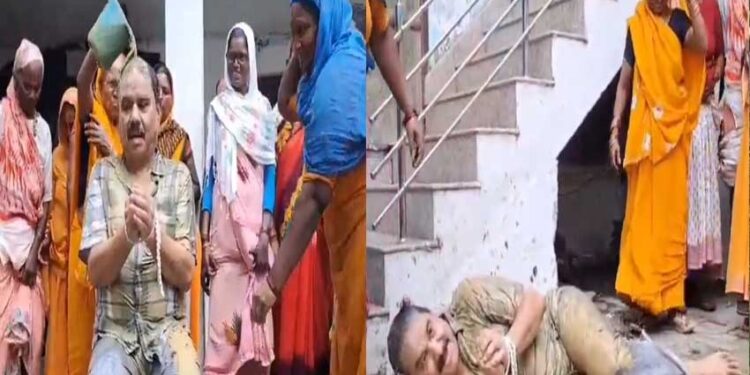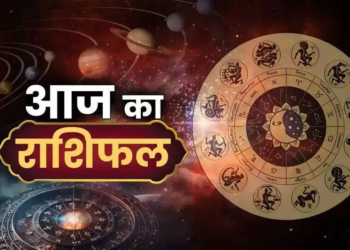Entertainment News Desk!! Kamal Amrohi (English: Kamal Amrohi, born: January 17, 1918 – death: February 11, 1993) was a producer-director who composed poetic on-screen films like Mahal, Pakeezah and Razia Sultan. Kamal Amrohi left his indelible mark on Indian cinema as an excellent lyricist, screenplay and dialogue writer, producer and director and made an important contribution in giving it a direction. Pakeezah was the dream project of his life. In the last phase of his film career, he wanted to make a film named ‘Antim Mughal’, but his dream remained unfulfilled.
Introduction
Kamal Amrohi’s original name was ‘Syed Aamir Haider’. Born on 17 January 1918 in a landlord family of Amroha, Uttar Pradesh, the story of Kamal Amrohi reaching Mumbai and then creating the history of success is like a film story. In his childhood, he used to trouble the entire village with his mischiefs. Once scolded by his mother, he promised that he would become famous one day and would fill her pallu with silver coins. Fed up with his mischiefs, one day his elder brother slapped him in anger and Kamal Amrohi ran away from home in anger and reached Lahore.
For Kamal Amrohi, Lahore proved to be a change in the direction of his life. There he obtained a master’s degree in ‘Oriental Languages’ and then started writing a regular column in an Urdu newspaper at the age of just 18. Respecting his talent, the editor of the newspaper increased his salary to Rs 300 per month, which was a huge amount at that time.
in Calcutta
After working in the newspaper for some time, he went to Calcutta and then came to Mumbai. In Lahore, he met the famous singer and actor Kundanlal Sehgal, who recognized his talent and took him to producer-director Sohrab Modi, owner of ‘Minerva Movietone’, to work in films. At the same time, producer-director and story writer ‘Khwaja Ahmed Abbas’ was impressed by one of his short stories ‘Sapno Ka Mahal’.
married life
Kamal Amrohi married three times. His first wife’s name was ‘Bano’, who was the maid of Nargis’s mother Jaddanbai. After Bano’s death from asthma, he married ‘Mahmudi’. Kamal Amrohi’s third marriage was to actress Meena Kumari, who was about fifteen years younger than him. Both of them met on the set of a film and fell in love. At that time, Kamal Amrohi was 34 years old while Meena Kumari was 19 years old. Both of them got married in 1952 but this relationship did not last long and they got separated. Kamal Amrohi’s love for Meena Kumari probably remained intact till the end, that is why he was buried next to Meena Kumari’s grave in the graveyard after her death.
singer and lyricist
Kamal Amrohi came to know that Sohrab Modi was looking for a story. The film ‘Pukar’ (1939) based on his story was a super hit. He wrote four songs for this film starring ‘Naseem Bano’ and ‘Chandramohan’ –
Hey Mahobe Ghat, you are the washerman..,
You are in my heart, you are Maneka in my eyes..,
Listen to the song wow song Saiyan..,
Why should you tease me, you dishonest person..
After this, he started writing stories, screenplays and dialogues for films and he wrote Jailer (1938), Main Haari (1940), Bharosa (1940), Mazaak (1943), Phool (1945), Shahjahan (1946), Mahal (1949), Daaraa (1953), Dil Apna Aur Preet Parai (1960), Mughal-e-Azam (1960), Pakeezah (1971), Shankar Hussain (1977) and Razia Sultan (1983), Bharosa (1940) and wrote stories, scripts and dialogues for the films.
Kamal Amrohi worked for very select films but whatever work he did, he did it with full heart and passion. His work bore the imprint of his personality. This is the reason why his pace of making films was very slow and he also had to face criticism for this.
Mahal (film)
Producer Ashok Kumar’s film ‘Mahal’ proved to be an important turning point in Kamal Amrohi’s career. He was entrusted with the responsibility of directing this film. Made with melodious songs, music and imaginative use of sound, woven with the fabric of mystery and romance, this film became a superhit and with this, the process of making horror and suspense films started in Bollywood. The tremendous success of the film established heroine Madhubala and singer Lata Mangeshkar in the film industry.
Establishment of Kamalistan Studio
After the success of the film Mahal, Kamal Amrohi established ‘Kamal Pictures’ in 1953 and Kamalistan Studio in 1958. Under the banner of Kamal Pictures, he produced the film ‘Daira’ with actress wife Meena Kumari, but this film, considered among the art films of India, did not do well at the box office. Meanwhile, producer-director K. Asif was busy making his ambitious film Mughal-e-Azam. Wajahat Mirza was writing the dialogues for this film but Asif felt that there was a need for a dialogue writer whose dialogues would not leave the audience’s mind for years and for this he found no one more suitable than Kamal Amrohi. He included him among his four dialogue writers. His dialogues written in Urdu language became so famous that during that time, boyfriends and girlfriends started expressing their love through the dialogues of Mughal-e-Azam in love letters. For this film he was given the Filmfare Award for Best Dialogue Writer.
Pakeezah (film)
Pakeezah was Kamal Amrohi’s dream project on which he started working in 1958. At that time it was going to be made in black and white. After some time, when CinemaScope became popular in India, he started making it in CinemaScope form in 1961, but due to Kamal Amrohi’s separation from his third wife Meena Kumari, the production of the film remained closed from 1961-69. Later, somehow he convinced Meena Kumari to work in the film and finally the film was completed in 1971 and released in February 1972.
This film, decorated with excellent dialogues, songs, music, visuals and acting, achieved record-breaking success and today this film is counted among the classic films of history. He also wrote a song Mausam Hai Aashikana.. for this film. Which was very acceptable. After this film, Kamal Amrohi lost his connection with films for some time. In 1983, he again turned to the film industry and proved his directorial abilities with the film Razia Sultan.
demise
This amazing personality, who captivated the audience with her magic, said goodbye to this world on 11 February 1993.










